Building a new PC
As Ireland went into second lockdown of 2020, I've decided to upgrade my home personal computer.
I use my PC for gaming, hacking around with Linux and general wasting time in the Internet.
Previously I used PC with Intel i5-3550. After an SSD, GPU and memory upgrades it was still a very capable machine. It is actually still in use today to play some less demanding games co-op with my spouse. However I was not 100% happy with how some CPU-heavy games behaved (city/transport simulators), and compile times were getting annoyingly long while hacking. Another thing I was not happy about is fan management - the old PC had proprietary Lenovo motherboard which would spin case and CPU fans too much.
Desires
Given above I wanted:
- Quietness. Ideally I wanted it to be semi-passive so that all fans will stop completely under light load.
- Good single-core performance for games which don't do multi-threading too well.
- 8 or more cores for compiling stuff (also, it's fun to have many bars in
htop).
Components
Here's what I ended up with:
| Type | Item | Price |
|---|---|---|
| CPU | AMD Ryzen 7 3800X 3.9 GHz 8-Core Processor | €433.91 @ Custompc |
| CPU Cooler | Noctua NH-U12S 55 CFM CPU Cooler | €69.94 @ Komplett |
| Motherboard | Asus ROG STRIX B450-F GAMING ATX AM4 Motherboard | €116.08 |
| Memory | Crucial Ballistix 32 GB (2 x 16 GB) DDR4-3200 CL16 Memory | €143.98 |
| Storage | Crucial P5 1 TB M.2-2280 NVME Solid State Drive | €154.87 |
| Video Card | EVGA GeForce RTX 2060 SUPER 8 GB SC ULTRA GAMING Video Card | €415.45 |
| Case | GameMax Silent ATX Mid Tower Case | Purchased For €0.00 |
| Power Supply | Corsair RMx (2018) 650 W 80+ Gold Certified Fully Modular ATX Power Supply | €138.95 @ Komplett |
| Operating System | Microsoft Windows 10 Home OEM 64-bit | Purchased For €0.00 |
| Case Fan | Noctua A14 PWM 82.5 CFM 140 mm Fan | €37.94 @ Komplett |
| Monitor | HP Z24i 24.0" 1920x1200 60 Hz Monitor | Purchased For €0.00 |
| Prices include shipping, taxes, rebates, and discounts | ||
| Total | €1511.12 | |
| Generated by PCPartPicker 2020-12-10 13:42 GMT+0000 |
Case
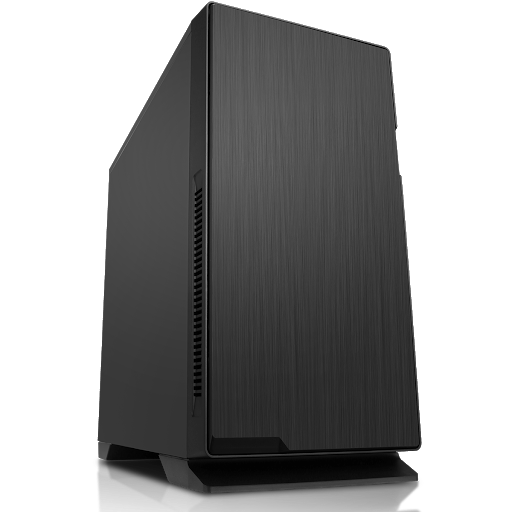 I used GameMax Silent Mid-Tower PC Gaming Case, just because I already had it.
I used GameMax Silent Mid-Tower PC Gaming Case, just because I already had it.
Pros:
- Although is says "gaming case", it looks neutral - like a big black box. No extra lights, windows, etc.
- Some decent sound dampening - it has some rubber-y stuff inside of panels.
Cons
- It's huge. Works for me right now, but who knows if it will change in the future. I may be forced to change the case if we move or re-arrange something in current apartment.
- It has a lot of parts, compartments which I don't use: 3.5" and 2.5" SSD/HDD enclosures, separate compartment for PSU, 5.25" bays for optical drives, etc.
Alternatives:
If I was getting something new I probably would have chosen something smaller and simpler, like one of the CoolerMaster Q series, or maybe a small mini-ITX case.
CPU
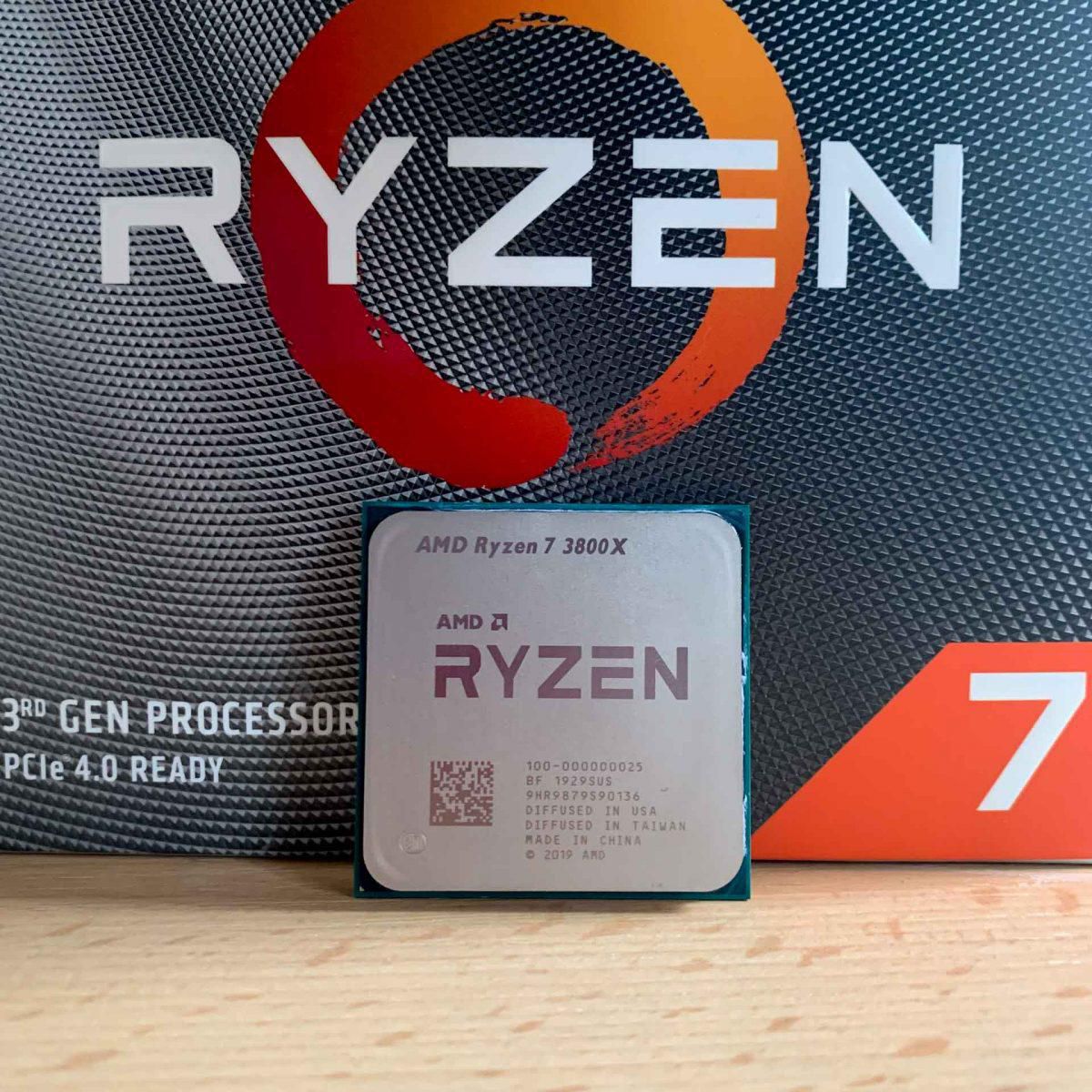
AMD 3800X performs very well, and majority of my workloads don't stress it enough. Originally I wanted to go with 3700X as however there was a discount for 3800X and it was just ~15 EUR more expensive. The price from PCPartPicker above is incorrect - I got it for about 320 EUR.
Note I got it well before 5000 series were released.
Pros
- 8 cores / 16 threads.
- Cores are reasonably fast - it easily gets 4.5 boost GHz on single-thread tests.
- Was only ~15 EUR more expensive than 3700X
- It's on the same socket as all AMD Ryzen so far (up to most recent Ryzen 3), and there is a lot of different motherboards with forward and backward compatibility. I may upgrade to 5000 series later without too much hassle.
Cons
- It's hot: 105 W TDP.
- Not as fast in single thread as 3800XT, which boosts up to 4.7 GHz.
- Comes with a cooler which I had no use for. Throwing away perfectly good cooler is bad for environment. Anyone wants free prism cooler?
Alternatives
- AMD 3600XT has less cores, but also less expensive, have same single-thread performance and lower TDP.
- 3800XT is a bit more expensive and faster in single thread.
- Intel i9 9900K has similar performance, a bit lower TDP but was more expensive at the time (seems similar price now though).
CPU cooler
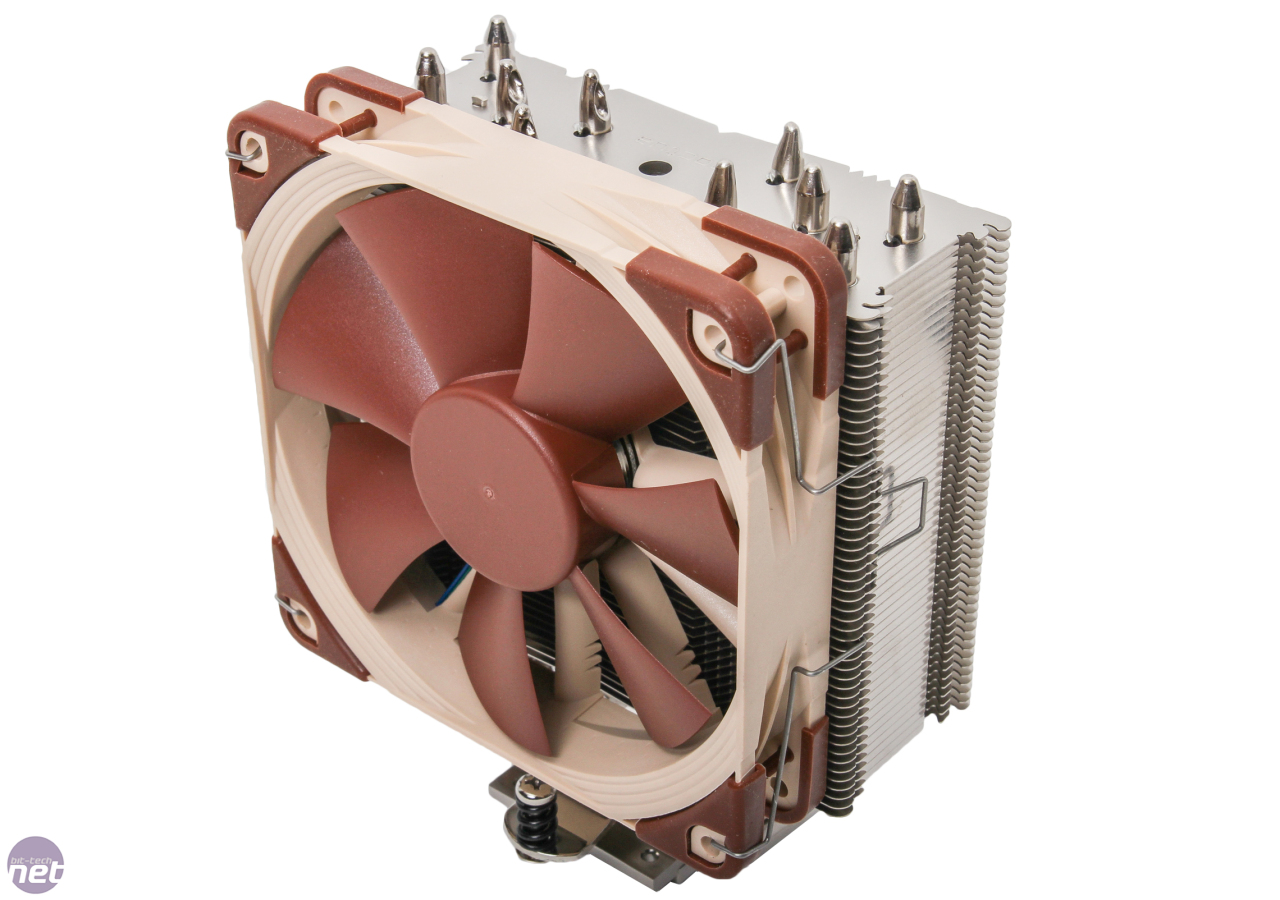
As I mentioned above, the CPU is hot! It is listed at 105 W TDP, and I suspect my motherboard may be giving it even more. It goes up to 75-ish C under full load forcing Noctua NH-U12S to spin at full speed. And although this is a very good cooler and it's not audible whatsoever up until about 50% RPM, it is very noticeable at 100%.
I use it in one-fan configuration. I may try attaching 2nd fan in a pull configuration - maybe the two fans will be able to cool the CPU at a lower speed.
Alternatives
I probably should have went with larger NH-D15.
Motherboard
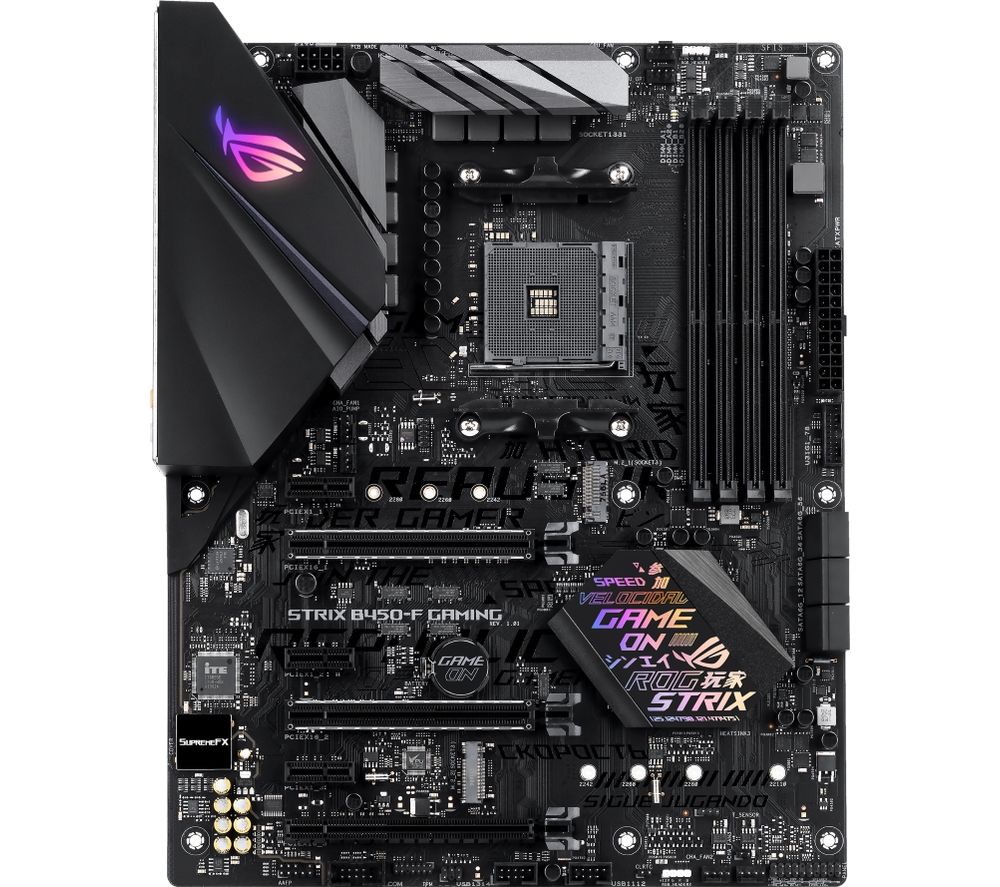
I went for Asus ROG STRIX B450-F GAMING as I had good experience with Asus motherboards previously. However, this model was rather disappointing, and the main reason my intention of having semi-passively cooled PC failed. Turns out although Asus has fancy setup program with a lot of control over how fans work, it is unable to turn PWM fans off. And for CPU fan it insists to have 100% RPM at above 75 C. I would have been more comfortable running my CPU up to 80-85 C and would have preferred something like 80% RPM at 75 C.
Pros
- 4+ fan headers
- 4 slots for RAM
- Integrated IO shield is a blessing - no more forgetting or getting stabbed by it. End result looks better too
Cons
- Can't turn PWM fans off, limited flexibility it setting fan curves
- B450 chipset does not support PCI-express 4.0 (though it does not matter for me)
- Takes a long time to initialize - long enough that my monitor decides to turn off or (more annoyingly) switch to another video input if there's a work laptop connected to it.
- No integrated beeper. I tried turning it on with no monitor connected and thought it didn't post.
Alternatives
Dunno? I suspect many "gamer" motherboard may have similar problems, and non-gamer ones seem to be much more expensive. I'd probably still look into server/workstation segment. I would be also cool to have open-source firmware on board so that I can modify it to my liking. There was some news about Coreboot support for AMD processors.
Memory
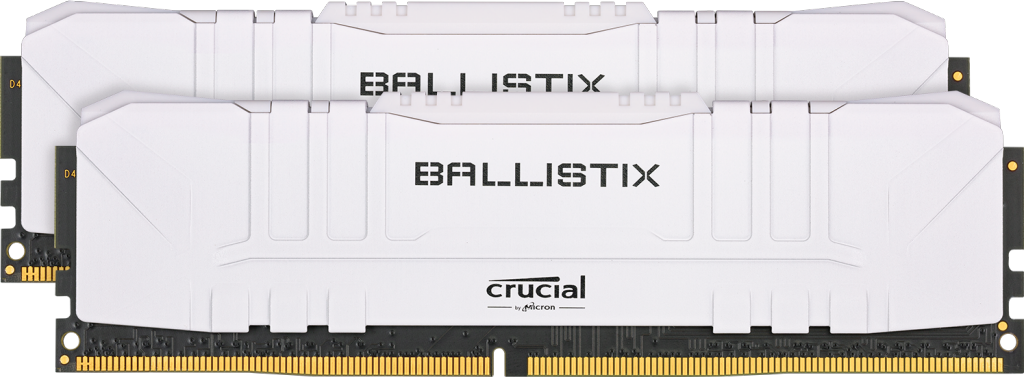
Crucial Ballistix 32 GiB Kit (2 x 16 GiB) DDR4-3200 Desktop Gaming Memory does the job. I debated about having ECC but it wasn't clear if consumer motherboard will support it well, so I decided against it. I went for DDR4-3200 as AMD website listed it as fastest supported by AMD 3800X. It turns out it's more complicated and I may have went for faster one.
For some reason it was detected as 2600, not 3200 and I had to manually adjust it in BIOS settings.
SSD
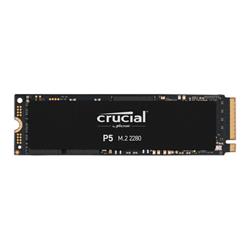
Crucial P5 1 TB just works. This is my first M.2 SSD, and it was amusing see 1 TiB of fast storage can be now squeezed into such a small form-factor.
Video Card
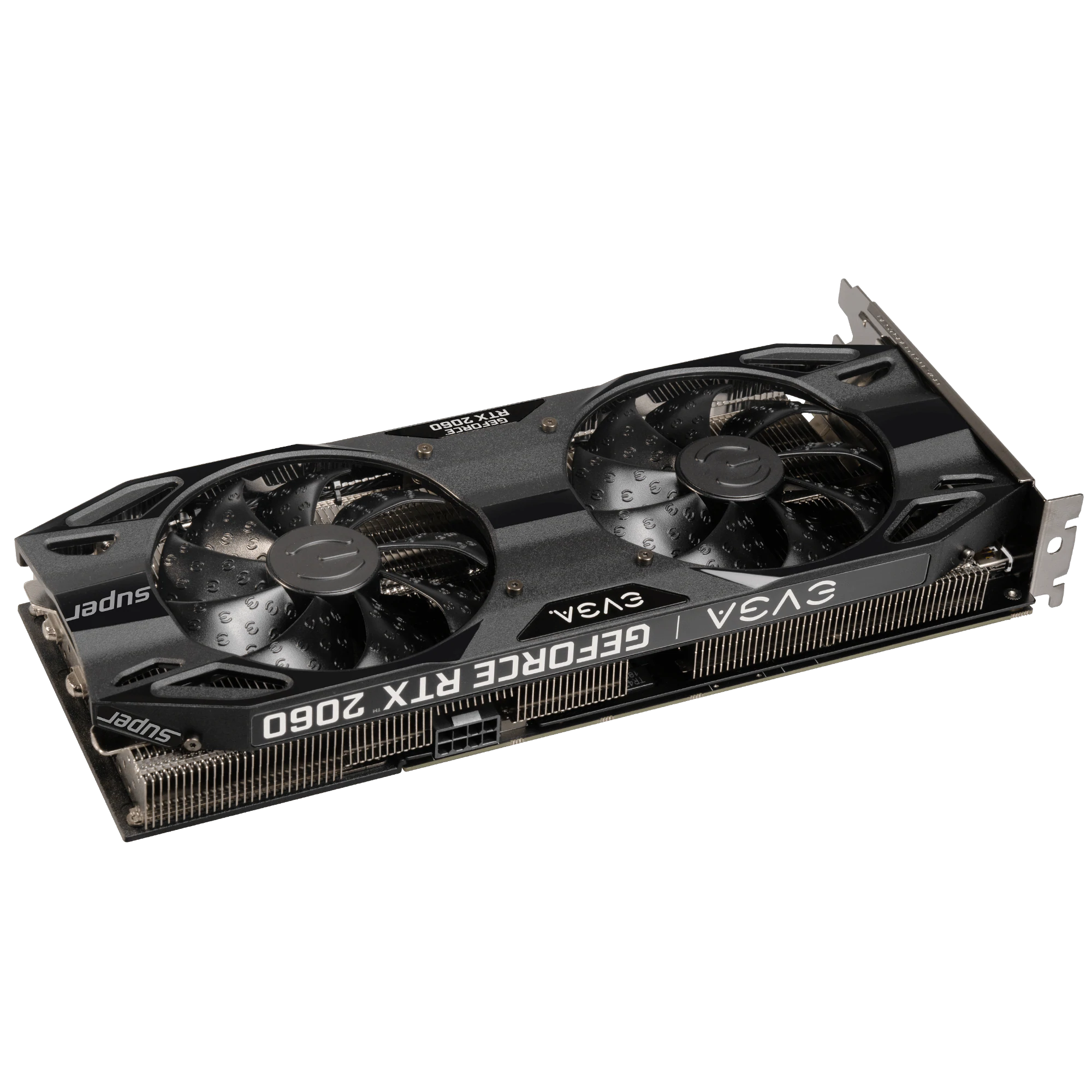
I've got EVGA GeForce RTX 2060 SUPER because I was willing to spend at most 500 EUR on video card, and everything else felt like a potential downgrade from 1070 I previously used (all 16* and 2050 had less than 8 GiB of memory). I did not look into AMD cards since I had bad experience with their drivers before (both in Linux and Windows), and did not hear enough positive news about them improving.
Pros
- Semi-passive: stops fans under light load.
- Can run most current games at 60 fps / 1080p on ultra settings.
Cons
- For ~500 EUR it does not feel like a big update from 1070.
- Still struggles with some games on highest settings. Turns out most demanding game I have right now is Borderlands 3 and it can't quite run it on ultra at 60 fps.
- Eats a lot of power, and produces a lot of heat. It feels like 10-series card with higher power budget.
Alternatives
Recently released GeForce RTX 3070 would definitely be a better choice at similar price.
PSU
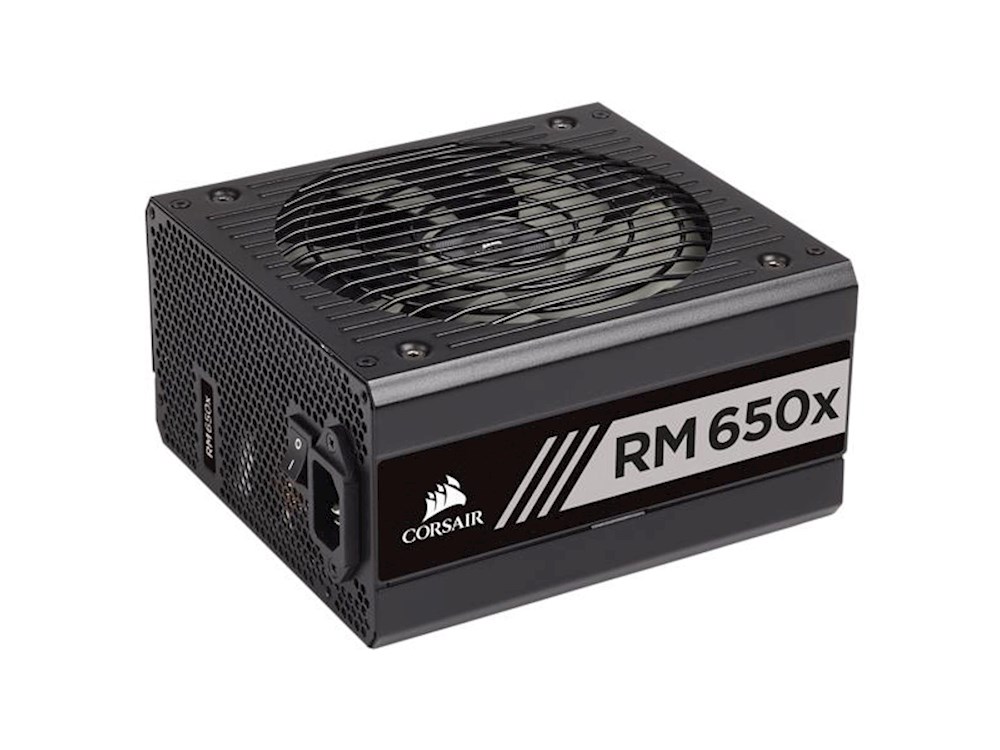
Corsair RM650x works well and have some margin. I think my systems would have worked well with 550 W or maybe even 450 W PSU.
Pros
- Semi-passive - turns off fans completely under low power draw.
- Modular - since my PC does not have any SATA drives, or any extra devices I only needed a few cables coming from PSU.
Cons
- Fan speed depends on power draw, not temperature. It will spin fans under load even if it's not hot.
- 80+ GOLD certified, which is not highest rating available. 80+ Platinum are available now.
End result
Overall, it's a decent upgrade, and may last me another 8 years with minimal modifications.
I failed at goal of making it semi-passive, as stupid motherboard will spin fans even at idle. However as I'm writing this post all fans are at 15% of their max RPM, and I can't hear them at all. Things get loud if I ran CPU at 100% for over a minute, or when I play demanding games. Former could have been improved if Motherboard will let me run CPU hotter, or maybe with different CPU fan configuration. For latter not much can be done - 1060 eats up to 175 W, dumping all this heat back into the case, so things get hot. In such workloads my computer becomes a heater, and I don't need any extra heating during Irish winter in my small room while playing demanding games.
What I would have changed
- Different motherboard which gives me more control over fans.
- Different / more efficient CPU cooler.
Upgradability
It should be easy to upgrade the following:
- RAM to 64 GiB as there are two more slots available, and motherboard supports that
- CPU to Ryzen 5000 series, and B450 chipset should still support them
- Video card to Nvidia 30 or later series
So overall decent.

Comments